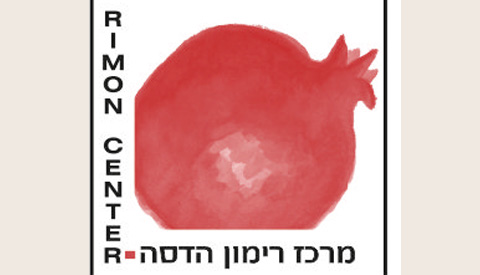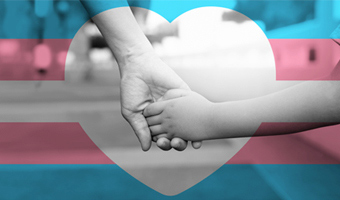
When “Naomi” first began in vitro fertility (IVF) treatment a few years ago, she expected to feel tremendous joy at the prospect of becoming pregnant; yet, all she felt was tremendous angst. “I suffered from anxiety and it was hard for me to sleep,” the Jerusalem resident said.
That changed when she discovered Transfer with Tranquility, a new service offered by the Keren Gefen Mind-Body Fertility Organization in partnership with the Mind-Body Fertility Center at Hadassah Hospital Mt. Scopus, both founded by Dr. Karen Friedman. “We named the Center Rimon because rimon is the Hebrew word for pomegranate and the pomegranate symbolizes fertility,” says American-born Dr. Friedman, who moved to Israel 25 years ago with a PhD in developmental psychology.
Transfer with Tranquility offers women a one-on-one relaxation session with a yoga specialist before and after undergoing an embryo transfer. Women learn to use guided imagery and relaxation techniques, and to embrace a potential pregnancy, explains Dr. Friedman.
Naomi describes it this way: “During the embryo transfer procedure, I felt focused, mentally clear, peaceful, confident, and grateful. I felt like I could handle whatever would come, that I was resilient and would be okay. This was a huge shift from when I did IVF a few years ago.”
Yoga Instructor Kady Harari, who has gone through fertility treatment herself, can empathize with each woman. Aside from the individual sessions, she also leads weekly restorative yoga classes for IVF patients. “I know every challenge that they are going through--sadness, anger, frustration, inadequacy, and disappointment,” Ms. Harari says. “It’s a roller coaster, a gamut of emotions from A to Z.”
She adds: “Women don’t breathe from the time they enter the doctor’s office. They hold their breath during hormone shots, during the ultrasound, during the egg retrieval, and while waiting for the phone call to hear whether their eggs survived.”
Ms. Harari teaches women a variety of “how to” strategies: how to breathe, center themselves, let go of their body, relieve tension, and visualize. As one patient related: “Before I had the training, worried thoughts kept popping up about how the embryos would be, how they would take, how many there would be. I knew you were supposed to relax but I was too nervous!”
After participating in the Transfer with Tranquility session, she experienced a turnaround: “I felt a physical and emotional release that led me to tears,” she said. “A quiet seeped over my body and mind. As I walked into the hospital, a smile spread across my face. I felt the same calmness as I did the evening before at my one-on-one session.”
Dr. Friedman relates that studies have shown when you lower the stress and depression of women undergoing fertility treatments, you increase their chance of having children by 30 percent. Her own experience as a cognitive behavioral therapist also enabled her to see the positive impact of reframing negative or unhealthy thought patterns. This led to her holistic approach to fertility--connecting the mind with what is happening in the body.
Dr. Zvia Birman, a mind-body therapist and social worker, facilitates Keren Gefen support groups at Hadassah Hospital Mount Scopus. Despite the women’s lack of control over the outcome of their treatments, she says, women need to see themselves as active participants and not merely victims of their circumstances. In Dr. Birman’s first group, 12 of the 13 women became pregnant within a few months. “They weren’t relying on miracles,” she said. “They made it happen by taking advantage of all aspects of treatment--mind and body.”
But success isn’t defined solely as pregnancy, Dr. Friedman emphasizes. She wants women to feel empowered and to take responsibility for their fertility. With this attitude in mind, Dr. Friedman runs Fertility Preservation workshops for those women who are not ready, for whatever reason, to become parents right now. The goal is to educate women to the possibility of preserving their fertility. In this way, she explains, “If they marry later in life and are having fertility challenges, they will have frozen eggs and the potential to have a child.”









